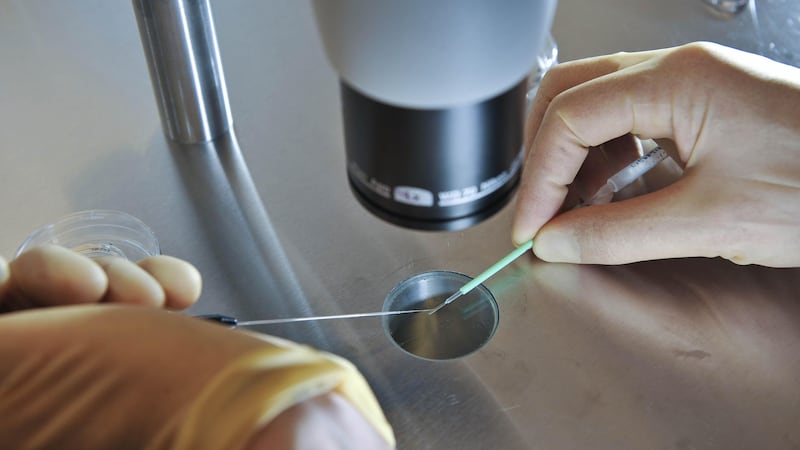Scientists from seven countries have called for a worldwide ban on the use of gene editing to stamp out inherited diseases or create “designer” babies.
The moratorium would continue for a fixed period of time during which “technical, scientific, medical, societal, ethical and moral issues” are considered.
Keeping the technology in check would also provide breathing space allowing international guidelines to be established, it is claimed.
Germline gene editing involves making alterations to inherited DNA that is passed down to future generations.
Around 30 countries, including the UK, currently have legislation that directly or indirectly bars all germline gene editing outside the laboratory.
But many fear easy-to-use “cut and paste” gene editing techniques will open the door to rogue scientists.
In China, Professor He Jiankui has reportedly been placed under house arrest after claiming to have altered the genes of twin girls to prevent them contracting HIV.
A total of 18 scientists and ethicists have signed a comment article in the journal Nature calling for the ban.
They point out that societal impacts of clinical germline editing “could be considerable”, with parents being put under “powerful peer and marketing pressure” to enhance their children.
The introduction of genetic modifications into future generations could have “permanent and possibly harmful effects on the species,” they warned.
Even if carried out for sound medical reasons, germline gene editing is fraught with risk, the authors argued.
“Variants that reduce the risk of some diseases often increase the risk of others,” they pointed out.
The scientists acknowledged a moratorium would place “major speed bumps” in the way of adventurous plans to re-engineer the human species.
But they added: “The risks of the alternative – which include harming patients and eroding public trust – are much worse.”
Last year, organisers of a summit on human genome editing in Hong Kong rejected calls for a blanket ban on altering inherited genes in embryos.
Hugh Whittall, director of the Nuffield Council on Bioethics, said of the article in Nature: “This is a welcome contribution in the developing international debate about genome editing, but many crucial questions about the technique still remain unanswered.”
Dr Beth Thompson, head of UK policy at the Wellcome Trust, said: “Genome editing technologies may hold great promise for improving health, but at this time the technology must not be used with the intention of producing babies with altered DNA.
“Although we do not agree that a moratorium is necessarily the best way to navigate this issue in the short term, it is clear that we do not yet fully understand the risks or benefits of this powerful technology, and finding the right governance approach is critical.”
The scientists calling for the ban include Professor Feng Zhang, from the US Massachusetts Institute of Technology (MIT), who helped develop the Crispr/Cas9 gene editing tool that has revolutionised genetics research.








